! Attention: MEI, Simples Nacional, Presumed Profit, Real Profit…
Corporate tax governance: benchmarking and technology
It uses data from the KPMG Survey (2024), which shows that 57% of companies do not have formal tax governance, while 66% have adopted tax technologies. It addresses the structuring of committees, automation and the importance of transparency for security and attracting investors.
Max Marcondes
1 min read
In the modern business environment, governance is no longer a differentiator — it has become a requirement. And when we talk about tax governance, the scenario reveals a critical gap: according to the KPMG Survey (2024), 57% of Brazilian companies still do not have a formal tax governance structure, which exposes them to severe operational, tax and reputational risks. At the same time, 66% have already adopted some type of tax technology, which indicates a growing movement towards automation, but not always accompanied by the appropriate control and compliance structure.
Tax governance goes beyond simply complying with tax obligations: it requires strategic organization, participation from multiple sectors and data-based decision-making. Companies that structure internal tax committees, integrating accounting, legal and executive management, are able to map risks, anticipate regulatory impacts and align tax decisions with business objectives. This governance makes the process more transparent, traceable and aligned with best market practices — something valued not only by regulatory bodies, but also by investors, partners and international funds.
Technological advances, in turn, have been a facilitator. Tax automation and analytical intelligence solutions are enabling greater precision in tax calculations, control of special regimes, credit monitoring and integration with the tax authorities in real time. However, as highlighted by the Contadores.cnt.br portal, technology alone is not enough without solid governance. There must be clear guidelines, well-defined roles and internal auditing for the systems to operate with maximum efficiency.
The companies that stand out in tax benchmarking are precisely those that combine technology, structure and legal strategy. They reduce costs, avoid hidden liabilities, maintain their reputation in the market and, most importantly, become more attractive to investors and mergers and acquisitions, where tax liabilities can be a decisive factor.
Therefore, investing in tax governance is investing in predictability, solidity and sustainable growth. In a country where legislation changes frequently and regulatory agencies are increasingly digitalized, the lack of governance is a risk that no modern company can afford.
Sources:
kpmg.com – KPMG Survey 2024 – Accessed in 2025
contadores.cnt.br – Accessed in 2025


© 2025. All rights reserved.
With technical and up-to-date expertise, the tax specialist contributes directly to the financial health of the business, ensuring legal security, compliance with tax authorities and greater competitiveness in the market.


